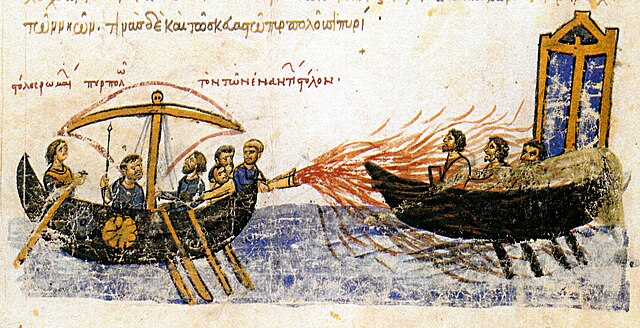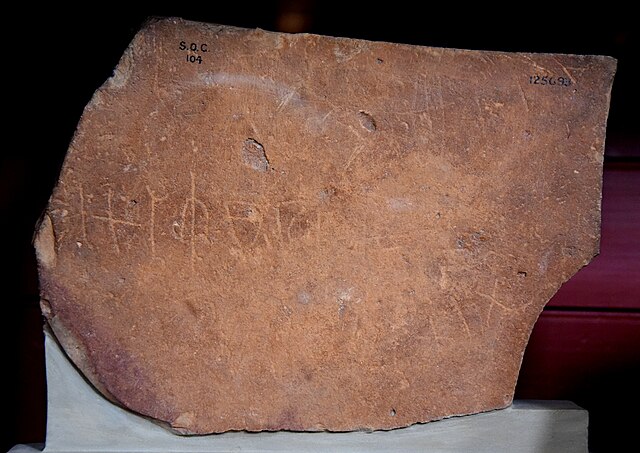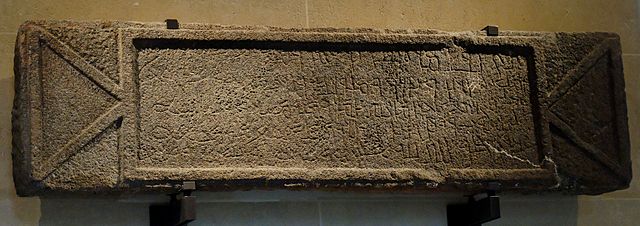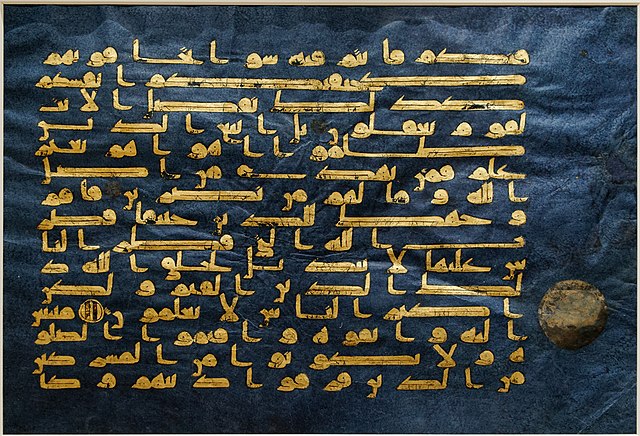The early Muslim conquests or early Islamic conquests, also known as the Arab conquests, were initiated in the 7th century by Muhammad, the founder of Islam. He established a new unified polity in Arabia that expanded rapidly under the Rashidun Caliphate and the Umayyad Caliphate, culminating in Muslim rule being established on three continents over the next century. According to Scottish historian James Buchan: "In speed and extent, the first Arab conquests were matched only by those of Alexander the Great, and they were more lasting."
Arab cavalry pursue fleeing Byzantines
Sasanian weaponry, 7th century
Bilingual Latin-Arabic dinar minted in Iberia AH 98 (716/7 AD)
Byzantine manuscript illustration showing Greek fire in action
Arabic is a Central Semitic language of the Afroasiatic language family spoken primarily in the Arab world. The ISO assigns language codes to 32 varieties of Arabic, including its standard form of Literary Arabic, known as Modern Standard Arabic, which is derived from Classical Arabic. This distinction exists primarily among Western linguists; Arabic speakers themselves generally do not distinguish between Modern Standard Arabic and Classical Arabic, but rather refer to both as al-ʿarabiyyatu l-fuṣḥā or simply al-fuṣḥā (اَلْفُصْحَىٰ).
Safaitic inscription
The Namara inscription, a sample of Nabataean script, considered a direct precursor of Arabic script.
Arabic from the Quran in the old Hijazi dialect (Hijazi script, 7th century AD)
The Qur'an has served and continues to serve as a fundamental reference for Arabic. (Maghrebi Kufic script, Blue Qur'an, 9th–10th century)








